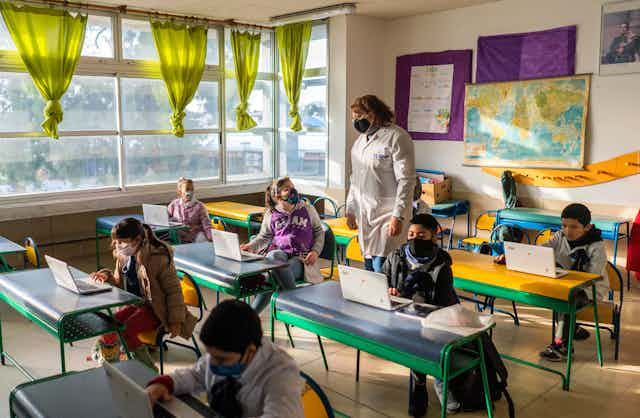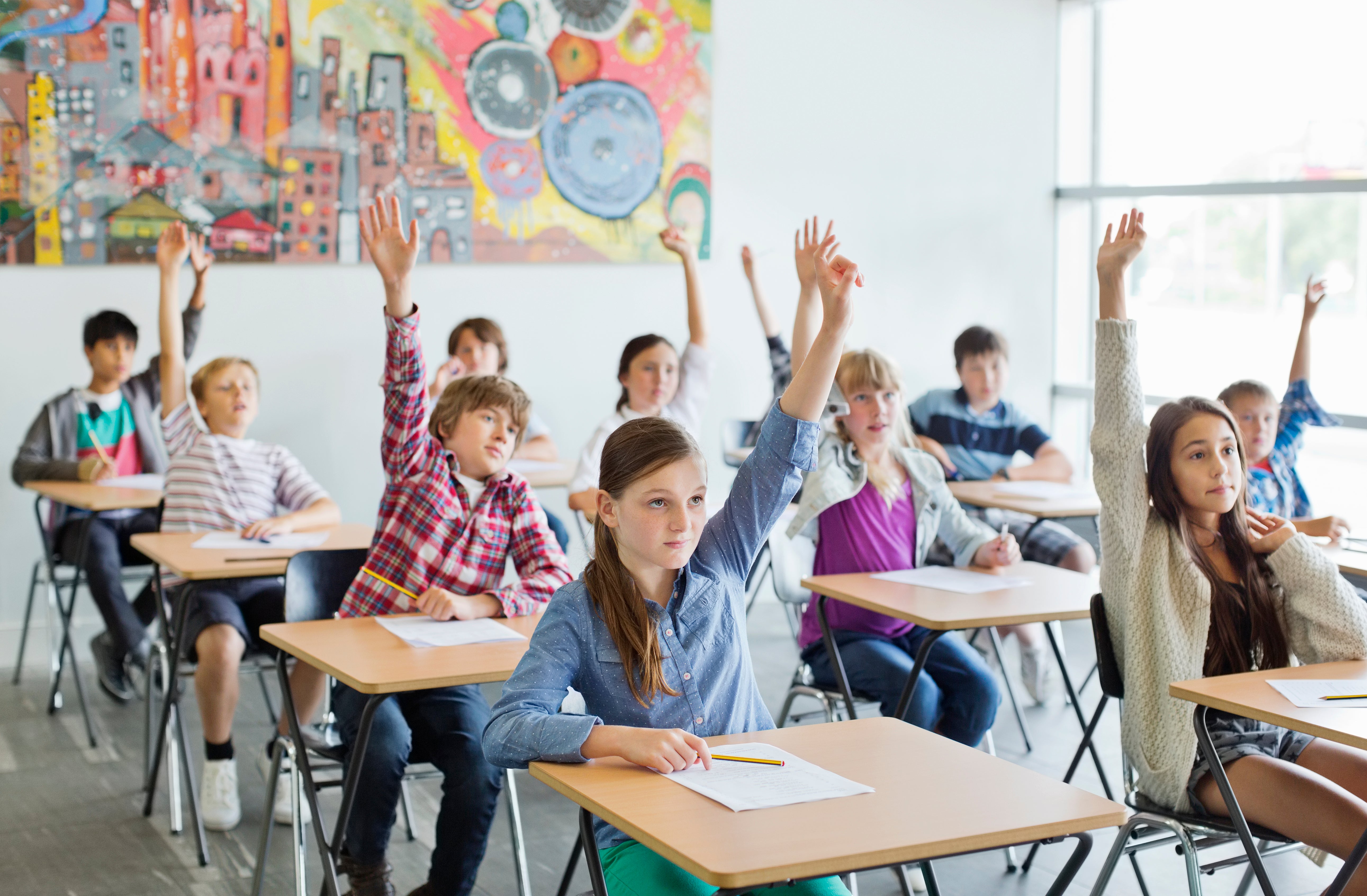The Duty of Moms And Dads and Teachers in the Effort to Save Temecula Schools
The Duty of Moms And Dads and Teachers in the Effort to Save Temecula Schools
Blog Article
Comprehending the Value of Colleges in Youngster Advancement and Neighborhood Development
Schools work as crucial institutions for child development and area development, supplying atmospheres where scholastic success are enhanced by the farming of social skills and direct exposure to varied perspectives. These academic settings not just promote critical thinking and reliable communication however also foster empathy via collaborative jobs. Schools' interaction with regional neighborhoods through service-learning efforts enhances the bond in between family members and instructional organizations. This cooperative relationship underscores the value of colleges in supporting active citizenship and long-lasting learning habits. Nonetheless, what are the details systems by which these establishments accomplish such profound effects?
Academic Achievement
Academic accomplishment offers as a keystone of kid development, providing the structure upon which future understanding and success are constructed. Colleges play a critical duty in fostering this academic growth, supplying structured settings where youngsters can get vital expertise and cognitive skills. Standard curricula ensure that trainees gain proficiency in core subjects such as maths, science, and language arts, which are essential for both college and specialist chances.
Along with passing on fundamental scholastic abilities, colleges additionally grow essential reasoning, problem-solving abilities, and intellectual inquisitiveness. These cognitive competencies are vital for navigating complex real-world circumstances and adapting to the ever-evolving needs of the modern-day office. Educators, as facilitators of knowing, employ varied pedagogical methods to accommodate diverse learning designs, consequently optimizing specific trainee potential.
Moreover, scholastic success is very closely connected to self-esteem and motivation. Children that experience scholastic achievements are more probable to create a positive self-concept and a lifelong interest for understanding. Schools likewise provide different resources, such as libraries and technology, which even more enhance the educational experience and prepare students for a highly sophisticated culture.
Social Skill Development
Beyond scholastic success, the duty of schools in social ability growth is important. Schools work as a main venue for kids to find out and exercise essential social skills such as communication, cooperation, and conflict resolution. In the organized setting of a classroom, pupils interact with peers, educators, and various other college team, using many possibilities to establish these essential capacities.
Efficient social skill advancement in schools is assisted in via group activities, collaborative tasks, and extracurricular programs. These communications aid trainees comprehend social standards, construct empathy, and promote a feeling of area. As an example, group projects teach pupils just how to work together in the direction of a typical goal, pay attention to different perspectives, and browse disagreements constructively.

The cultivation of social abilities throughout school years lays a foundation for future individual and specialist connections. Save Temecula Schools. As trainees mature, the ability to successfully communicate and collaborate comes to be significantly important, emphasizing the institution's crucial function in all natural kid growth
Direct Exposure to Variety
Exposure to variety in institutions is fundamental to promoting an inclusive way of thinking and broadening students' viewpoints. Schools act as a microcosm of the wider culture, and encountering varied societies, languages, and socioeconomic backgrounds within this environment equips pupils with vital abilities for browsing a significantly globalized globe. This exposure urges compassion, reduces prejudices, and promotes shared regard among peers.
Research study indicates that pupils who engage with peers from different histories display much better analytic skills and creativity. This understanding of variety prepares trainees for future offices that value multicultural competence - Save Temecula Schools.

Area Interaction
The advantages of varied classrooms prolong beyond the institution wall surfaces, cultivating a solid sense of community engagement among students. By engaging with peers from numerous social, socioeconomic, and ethnic histories, students get a more comprehensive perspective and a gratitude for diversity. This exposure encourages them to become active people who want to contribute positively to their communities.
Institutions that emphasize neighborhood interaction often incorporate service-learning projects, which enable trainees to resolve real-world issues while applying academic skills. These projects not only enhance students' the original source understanding of their coursework however likewise instill a feeling of obligation and empathy. Additionally, partnerships between institutions and neighborhood companies offer pupils with possibilities to take part in neighborhood occasions, even more strengthening their role as proactive neighborhood members.
Furthermore, adult and community participation in schools reinforces the bond in between educational establishments and the areas they serve. When schools open their doors to community occasions, workshops, and volunteer opportunities, they produce a joint environment that benefits all stakeholders. This common support group makes sure that pupils receive all natural growth, preparing them to end up being well-rounded people that add and value to their neighborhoods. Via these efforts, colleges play a critical duty in nurturing area involvement and cultivating societal development.
Lifelong Discovering Habits
Establishing lifelong knowing habits is essential for a youngster's constant development and adaptability in an ever-changing globe. Colleges play a critical role in instilling these routines by developing a setting that fosters curiosity, essential reasoning, and a love for expertise. Via diverse curricula and after-school activities, teachers encourage pupils to discover numerous topics, analyze info seriously, and apply their finding out to real-world situations.

Moreover, schools provide an organized atmosphere where youngsters can establish self-control and time management skills, both of which are crucial for constant learning. By stressing the relevance of setting goals, showing on progress, and adjusting approaches, schools prepare students to navigate the intricacies of grown-up life, guaranteeing they continue to be lifelong students and contributors to culture.
Conclusion
In conclusion, institutions are vital in cultivating youngster growth and community development by supplying environments helpful to scholastic accomplishment, social ability advancement, and direct exposure to diversity. Through collective jobs and communications, colleges improve critical thinking, compassion, and interaction skills. Neighborhood interaction initiatives further enhance the bond between neighborhood neighborhoods and academic establishments. Inevitably, colleges grow long-lasting learning habits, outfitting individuals with the required knowledge and abilities to add favorably to society.
In the organized atmosphere of a class, students connect with peers, teachers, and various other school personnel, supplying various possibilities to develop these essential abilities.
In significance, direct exposure to diversity within institutions not just enriches private pupils but likewise strengthens the social material of the community as a whole.
The benefits of varied classrooms extend past the school walls, cultivating a strong sense of community interaction amongst students.Schools that highlight area interaction often integrate service-learning tasks, which see here allow trainees to attend to visit this site real-world troubles while applying scholastic abilities. Collaborations in between schools and local organizations provide trainees with possibilities to get involved in community events, additionally strengthening their role as aggressive area participants.
Report this page